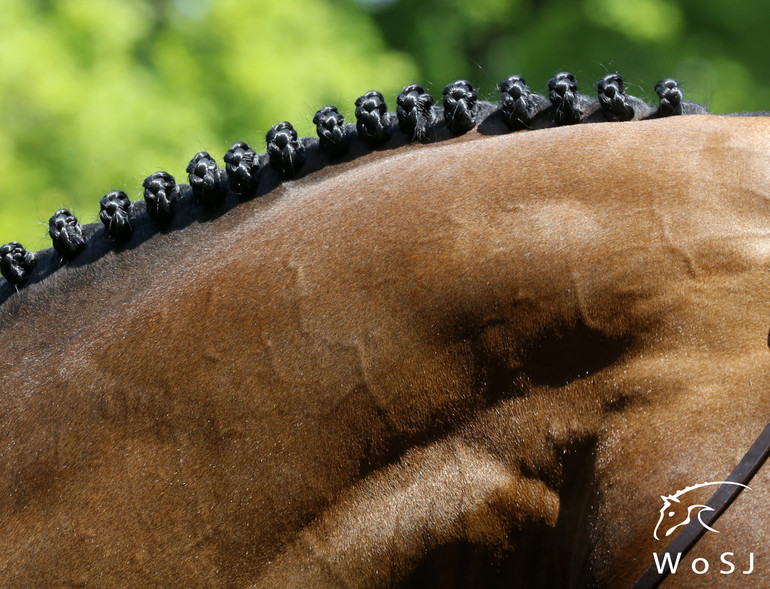Following the occurrence of EHV-1 in California, ESP Management has announced that they will be implementing updated EHV-1 protocols with immediate effect at the 2022 Winter Equestrian Festival in Wellington, Florida. A statement from Equestrian Sport Productions on the updated protocols reads:
"After reading the advice of the FEI Veterinary Department, ESP Management will be implementing the same biosecurity protocols for all new entries for WEF 2022. Please see the updated information below:
- Anyone shipping horses into the PBIEC facility and any new back numbers processed will be required to sign a declaration stating that the horses entering the facility are healthy and have not been in a California competition after January 28th.
- For any horse that has been at a California competition after January 28th OR has been exposed to any horse that has been at a California competition after January 28th, one of the following criteria must be met and provided to ESP Management before being able to come to the PBIEC Show Grounds:
- Criteria One: Two samples taken using nasopharyngeal swabs must be analyzed by PCR testing on day 7 and day 14. Day 0 is considered to be the day your horse left the California competition. Both swabs must result in negative test results to EHV-1 in order to satisfy the requirements. If either of the tests generates a positive result, the horse must remain in isolation and be re-tested. It is necessary to have two negative test results, taken at least seven days apart to fulfill the FEI Veterinary Department requirements.
- Criteria Two: Or the horse must have been isolated outside of a California horse show facility for 21 days. A rectal temperature must be taken and recorded during the isolation period, and samples must be taken after day 21 using a nasopharyngeal swab to test for EHV-1 via PC analysis. Day 0 is considered to be the day your horse left the California competition. The swab must show a negative PC test result to EHV-1. If the test generates a positive result, the horse must remain in isolation for a further 7 days and be re-tested before it is allowed entrance to PBIEC.
- Any horses that were released from isolation in California must only be released on the advice of your veterinarian.
As with any situation that involves our horses' welfare, we are all relying on the honesty of the individuals that are responsible for the horses' care. Due to the severity of the EHV-1 cases that are currently in California, the documents that will be required to bring a horse onto the PBIEC show grounds will be considered truthful and binding. In the event of any of these protocols being disregarded, we will refuse further entries from all related horses and we will inform USEF for further disciplinary action.
It is our shared responsibility to keep our horses safe. We urge all equestrians to please remember and abide by the following biosecurity measures:
- Take all horses’ temperatures daily and immediately report any horse with a temperature above 101.5 degrees Fahrenheit or any signs of respiratory or neurological disease to your veterinarian and/or show management.
- Take the temperature of all horses prior to shipping to WEF or AGDF, and do not bring any febrile horses or horses exposed to fevers of unknown origin to the show.
- Avoid mixing of horses where possible, practice equine social distancing. Please consider isolating any new horse(s) introduced to your farm for a minimum of 14 days.
- Ensure good hygiene and biosecurity at the show and your home farms.
- Make sure your horses are currently vaccinated for influenza and EHV. Under no circumstances should a horse that has been vaccinated compete within 7 days.
- You should be able to document your horse’s normal temperature before arrival. Please do not ship horses with elevated temperatures. It is recommended that you establish a log of temperatures taken at least twice daily. If there is an elevated temperature for more than a 24-hour period, please consult your local veterinarian immediately.
- Every effort should be made to minimize stress and commingling of horses shipped long distances. Extra hours on a horse van or moving from stable to stable is the fastest way to compromise your horses’ and your neighbor’s horses’ health.
- Please take the time to review equine good hygiene practices and impress their importance to your grooms and barn managers in everyday care.
Further biosecurity protocols and additional resources can be found here:
United States Department of Agriculture Information on Equine Herpesvirus
American Association of Equine Practitioners FAQ on Equine Herpesvirus
United States Equestrian Federation Biosecurity Measures for Horses at Home and at Competitions
Information on the current known positive EHV-1 cases can be found here: https://equinediseasecc.org/alerts.
ESP has longstanding protocols to manage such events and will provide isolation facilities if and as required. Experience has taught us that early identification is key when dealing with disease outbreaks, and this requires cooperation from everyone within the community.
If you have any questions or concerns about your horse’s health, please contact our veterinary partners: Palm Beach Equine Clinic at 561-793-1599."









